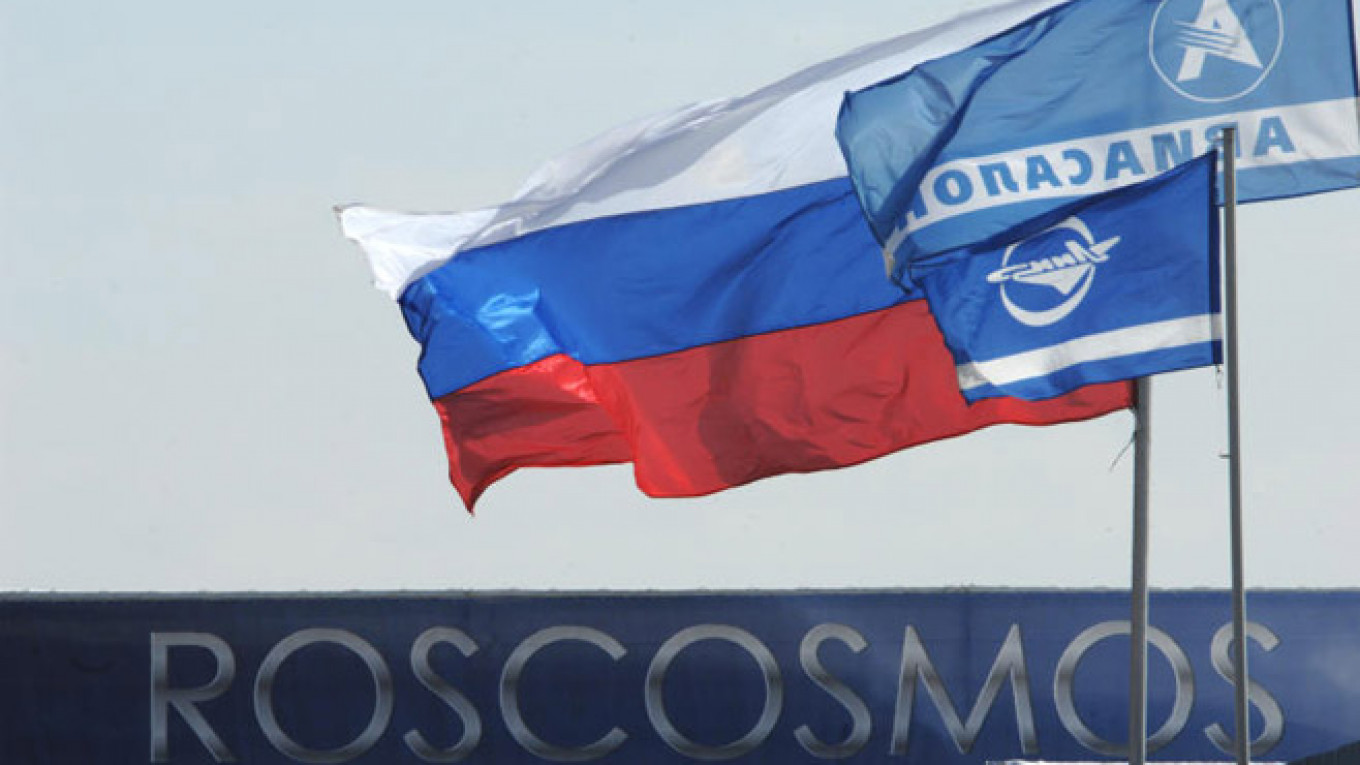Russia is to revise its space program, the national space agency said on Tuesday after a newspaper published a report that billions of dollars of cuts may be afoot including to ambitious Moon exploration plans.
Several Russian government ministries were engaged in revising the space program up to 2025, Roscosmos said in a written statement to Reuters.
It did not give details. But the Roscosmos statement and a report in Izvestia newspaper suggested Russia's prestigious space program may also have fallen victim to government cutbacks brought on by hard times.
Buffeted by low oil prices, Western sanctions and a falling rouble, the Russian government is in the process of scaling back its spending plans for everything from the health sector to welfare.
The authoritative Izvestia newspaper published details of what it said was a draft proposal sent by Roscosmos to the government which showed big spending cuts were being proposed to the Moon exploration program.
Russian Deputy Prime Minister Dmitry Rogozin announced in April last year that Moscow planned to build a big base on the Moon which he said would serve as a platform for scientific breakthroughs.
Izvestia reported Roscosmos was proposing to cut the manned flights segment of lunar exploration by 88.5 billion roubles ($1.22 billion) to 329.67 billion roubles, but said funding to build a spaceship to fly to the Moon would not suffer seriously.
Roscosmos, in its statement, declined to comment on those figures, saying the revised program was still extensive.
"The revised project of the federal space program for 2016-25 envisages the study of the Moon by automated orbiters, as well as by building up scientific and technical potential for further studies, including by manned missions," it said.
It declined to say whether Russia's plans for a Moon base were still alive, but said the first manned flight around the Moon would not take place before 2029.
President Vladimir Putin has spoken many times of rekindling Soviet-era space glory. The USSR launched the first artificial "sputnik" satellite in 1957, sent the first man into space in 1961, and conducted the first-ever space walk in 1965.
But Cold War rival the United States made six manned landings on the Moon between 1969 and 1972, while the Soviet-built N-1 heavy rocket, designed to take cosmonauts to the Moon, failed to make a single successful flight.
A Message from The Moscow Times:
Dear readers,
We are facing unprecedented challenges. Russia's Prosecutor General's Office has designated The Moscow Times as an "undesirable" organization, criminalizing our work and putting our staff at risk of prosecution. This follows our earlier unjust labeling as a "foreign agent."
These actions are direct attempts to silence independent journalism in Russia. The authorities claim our work "discredits the decisions of the Russian leadership." We see things differently: we strive to provide accurate, unbiased reporting on Russia.
We, the journalists of The Moscow Times, refuse to be silenced. But to continue our work, we need your help.
Your support, no matter how small, makes a world of difference. If you can, please support us monthly starting from just $2. It's quick to set up, and every contribution makes a significant impact.
By supporting The Moscow Times, you're defending open, independent journalism in the face of repression. Thank you for standing with us.
Remind me later.






